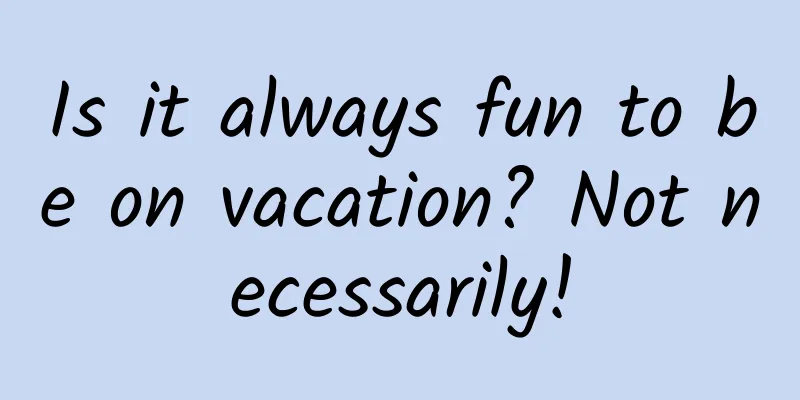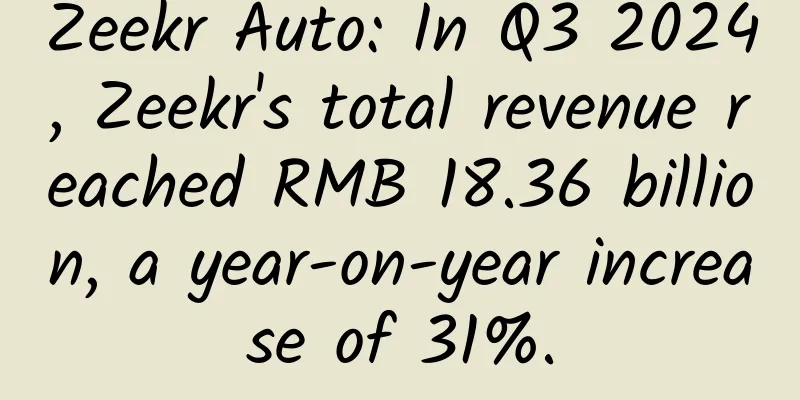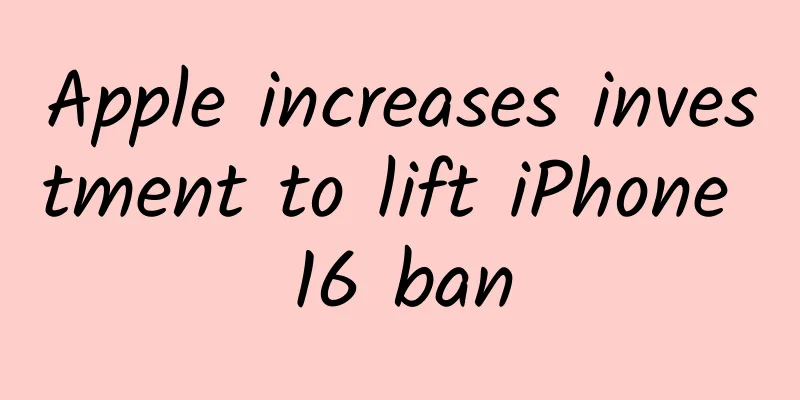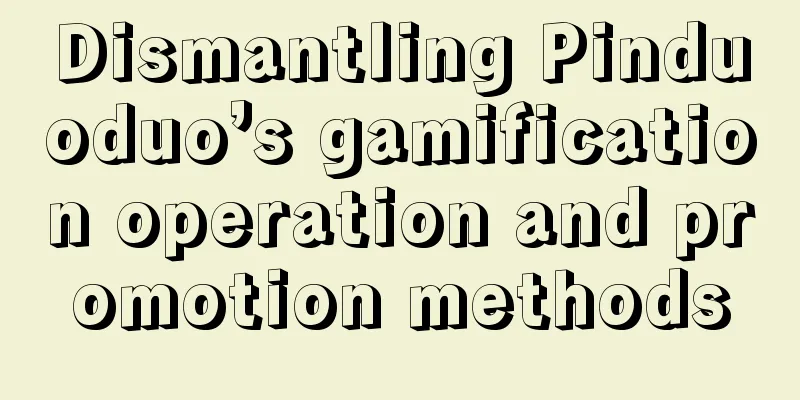Is it always fun to be on vacation? Not necessarily!

|
The May Day holiday is coming to an end in the blink of an eye! Is this your current state? As long as I don't close my eyes, the holiday will not end Did you spend this holiday like me? Either lie flat or lie flat The pace of life is getting faster and people are getting busier. While complaining about being too busy, everyone wants to have more free time. But does it really mean that we will feel happier the more time we have? Will we be happier when we spend time slacking off or lying down? A paper published in the Journal of Personality and Social Psychology analyzed data from tens of thousands of people to study this issue. The results showed that this is not necessarily the case! Part 1 Lying too flat is not that happy. This study analyzed data from 21,736 subjects who participated in the "American Time Use Survey" between 2012 and 2013. The respondents' ages ranged from 15 to 85 years old, with about half of them being "full-time workers" and half being "non-workers." The researchers asked the respondents in detail about what they had done in the past 24 hours, including what they did and how long it took. They categorized these things, calculated their free time, and reported their level of happiness at the time. The results showed that the relationship between free time and happiness is like a "parabola" - as free time increases from zero, happiness does increase accordingly; after 2 hours of free time, happiness tends to stabilize; but after 5 hours, happiness begins to show a downward trend. Image source: Translated from reference 1 The researchers also found that having too much free time was associated with less happiness, regardless of whether one was employed or not, or whether it was during the weekdays or weekends. This shows that free time to "lie down" as much as you want can indeed make people happy, but if you have too much free time, you will not be so happy. Part 2 Being fulfilled and meaningful is the correct way to be happy If “lying down” can’t bring happiness, then how can we get real happiness? To clarify this question, the researchers first recruited 2,550 volunteers and divided their free time into three groups: long, medium and short. They asked them to imagine and describe in detail what they would do with this free time if they had so much free time every day for half a year. At the same time, they also asked the volunteers to report their happiness during the imagination period. The results showed that even in an experimental setting where people were asked to imagine how they would spend their free time, too much free time still led to decreased happiness. Image source: Unsplash Based on this, the researchers recruited another 5,000 volunteers and divided their free time into three groups according to the length, medium and short time. The difference is that each group of volunteers was further divided into two groups: one group was asked to imagine that they would not waste their free time and would do something useful and meaningful ; the other group was asked to imagine that they would completely waste their free time and do something useless and meaningless. Image source: Translated from reference 1 The results showed that when people use their free time on meaningful things, more free time will bring higher happiness; while using it on meaningless things will bring the same results as before. Dr Sharif, the study's lead author, said: "Our results suggest that people can still be unhappy even if they have a full day of free time. People should try to use the appropriate amount of free time to satisfy their own pursuits, which will bring the highest happiness." Part 3 How can we get rid of lying down and live a fulfilling and meaningful life? Self-determination theory holds that if an individual wants to achieve a high level of happiness, he or she must meet three basic psychological needs: autonomy needs, competence needs, and relationship needs. The need for autonomy refers to people's need to believe that they can choose their own actions, rather than being forced to do something. Combined with this study, we will find that having enough free time actually represents this need for autonomy. When people have enough free time, they don't have to passively accept various work tasks, but have more freedom to choose to "lie down" or do whatever they like. Image source: Unsplash However, having sufficient free time to satisfy the need for autonomy is not enough, which introduces the following two psychological needs: competence needs and relationship needs. Competence needs refer to people's desire to complete something challenging because they will gain a sense of accomplishment after completion, which will bring a higher sense of happiness. This is also consistent with the research results. If people have enough free time and spend their time on meaningful things, they will gain more happiness. Relationship needs refer to people's need to establish social relationships with others and gain social support from others to improve their sense of happiness. The results of this study also show that people who are alone in their free time will show a typical parabolic sense of happiness, while people who use their free time to socialize have a straight-line sense of happiness. Image source: Unsplash Now you see, happiness depends not only on how much free time you have, but also on how you spend it. More than 5 hours of free time will actually lead to a decrease in happiness; while if you try to get about 2 hours of free time every day and use this time to do things you like or meaningful, you will feel happier. How did you spend this May Day holiday? References: 1. Sharif, MA, Mogilner, C., & Hershfield, HE (2021). Having too little or too much time is linked to lower subjective well-being. Journal of Personality and Social Psychology. 2. Sheldon, KM, Cummins, R., & Kamble, S. (2010). Life balance and well-being: Testing a novel conceptual and measurement approach. Journal of Personality, 78(4), 1093-1134. 3. Sheldon, KM, & Niemiec, CP (2006). It's not just the amount that counts: Balanced need satisfaction also affects well-being. Journal of personality and social psychology, 91(2), 331. 4. Grant, AM, & Schwartz, B. (2011). Too much of a good thing: The challenge and opportunity of the inverted U. Perspectives on psychological science, 6(1), 61-76. Produced by: Science Popularization China Author: Muramasa Producer: China Science Expo This article only represents the author's views and does not represent the position of China Science Expo This article was first published in China Science Expo (kepubolan) |
<<: AI autonomous weapons are here, our generation’s Oppenheimer moment is here
Recommend
On a budget? 6 Experiences in Selecting and Optimizing Channels for Channel Promotion
The core of APP promotion is to calculate the inp...
Why is the champion single product "leek box" so delicious~~
Audit expert: Wang Guoyi Postdoctoral fellow in N...
The most comprehensive disclosure of the monetization methods of self-media platforms (recommended for collection)
Please read this article carefully! Then you will...
ACEA: European Electric Vehicle Charging Infrastructure Master Plan (72 pages)
EU-27 Electric Vehicle Charging Infrastructure Ma...
Six steps! Crack and install Media Center in Windows 10
Microsoft completely cancelled the previous Windo...
Smart routing: the battle for the unclear “entrance”
The smart router market has always been interpret...
Psychologist: Letting children play with iPads and other tablets is tantamount to child abuse
Psychologists say that allowing children under tw...
Wei Buhuo: A short video editing course that novices can learn in one go, solving common problems you encounter in daily editing
Wei Buhuo: A short video editing course that even ...
How much does it cost to attract investment for the Dongying Red Packet Mini Program? What is the investment quotation for Dongying Red Packet Mini Program?
How much does it cost to attract investment in th...
Watermelon rind, great work! This Chinese scientific research team has produced another important result
Recently, Sun Licheng's team from the Future ...
Community operation: 2 steps to make a good community operation plan!
Nowadays, everyone is talking about community ope...
Price inquiry for customized Altay glasses mini program. How much does customized Altay glasses mini program cost?
In order to better penetrate into various industr...
Railways, a genius system
Editor's note: The history of railway develop...
Scientists have found the cause of China's prehistoric floods. No wonder Dayu was successful in controlling floods
About 4,000 years ago, a flood rarely seen in the...
Nokia doesn’t need to be replaced for five years, iPhone is used for an average of three years, what about the Android camp?
If there is any product that has completely chang...









